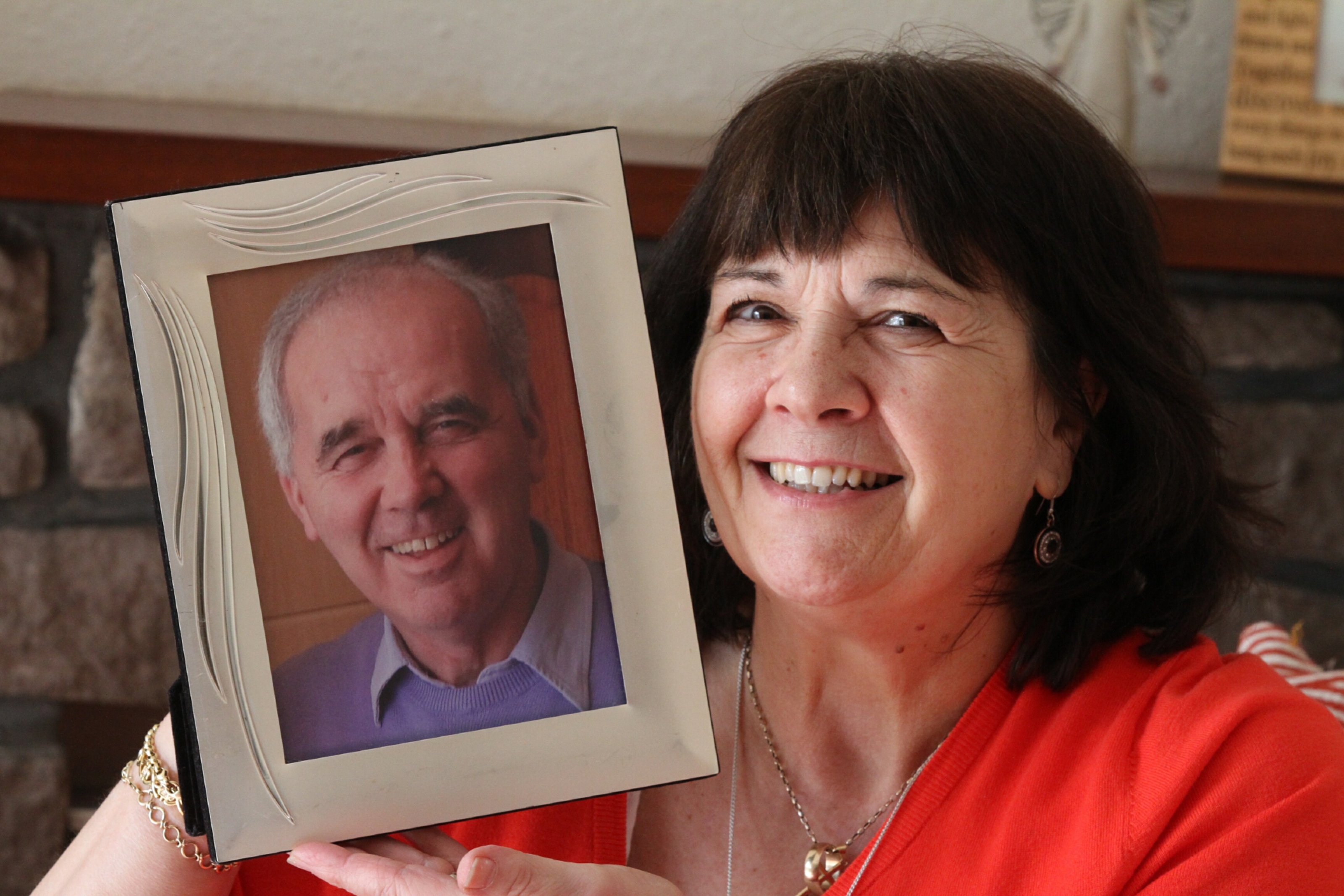Amanda Kopel believes young footballers should be warned they could suffer long-term health dangers from playing the game.
Mrs Kopel, the widow of Dundee United legend Frank, was speaking after research was carried out in the light of “growing concern” about links between brain injury in sport and the increased risk of dementia.
Researchers at the University of Stirling said they had identified “small but significant changes in brain function” after players headed the ball 20 times.
Memory performance was reduced by between 41% and 67% following the routine heading practice, with the effects wearing off after 24 hours.
The university said it was yet to investigate whether the changes to the brain were temporary after repeated games of football or if there were long-term consequences.
Mrs Kopel suspects her husband’s dementia was caused by years spent heading a hard leather ball like former West Brom striker Jeff Astle, the first confirmed case of chronic traumatic encephalopathy (CTE) in English football.
The family faced the distress of feeling unable to get the correct diagnosis of Frank’s condition until having his medical history re-examined by neuropathologist Dr Willie Stewart.
She said: “It’s horrible to think that doing a job you love could rob you of your life.
“When I look at pictures of Frankie jumping up to head the ball I look at them and think: ‘Was the damage done then?’”
Frank, who was part of Dundee United’s great team of the 1970s and 1980s, was just 59 when he was told that he had dementia in 2009.
“I think more must be done to explore the link between football and dementia,” she said.
“It’s just about trying to make sure there is recognition there that this could happen.
“What might have happened if somebody had said to Frankie when he was 10 that if he carried on playing football he might be diagnosed with one of the most horrific diseases in later life?”
Mrs Kopel said it is important that young people are made aware of the lasting effect heading a football may have on the brain.
In May this year, the English Football Association said it would lead a study into possible links between football and brain diseases.
Four of the eight surviving outfield players of England’s 1966 World Cup winning team are suffering with significant memory problems including Frank’s former Manchester United team-mate Nobby Stiles who is battling dementia.
The University of Stirling study was published in EBioMedicine and is the first to detect direct changes in the brain after players were exposed to everyday head impacts, as opposed to clinical brain injuries like concussion.
Researchers fired footballs from a machine designed to simulate the pace and power of a corner kick and asked a group of football players to head a ball 20 times.
Dr Magdalena Ietswaart, a cognitive neuroscientist at the University of Stirling, said: “Although the changes were temporary, we believe they are significant to brain health, particularly if they happen over and over again as they do in football heading.”
Since Frank’s diagnosis, Amanda, 66, has campaigned tirelessly for Frank’s Law – a law which would extend free care to under 65s with dementia.










